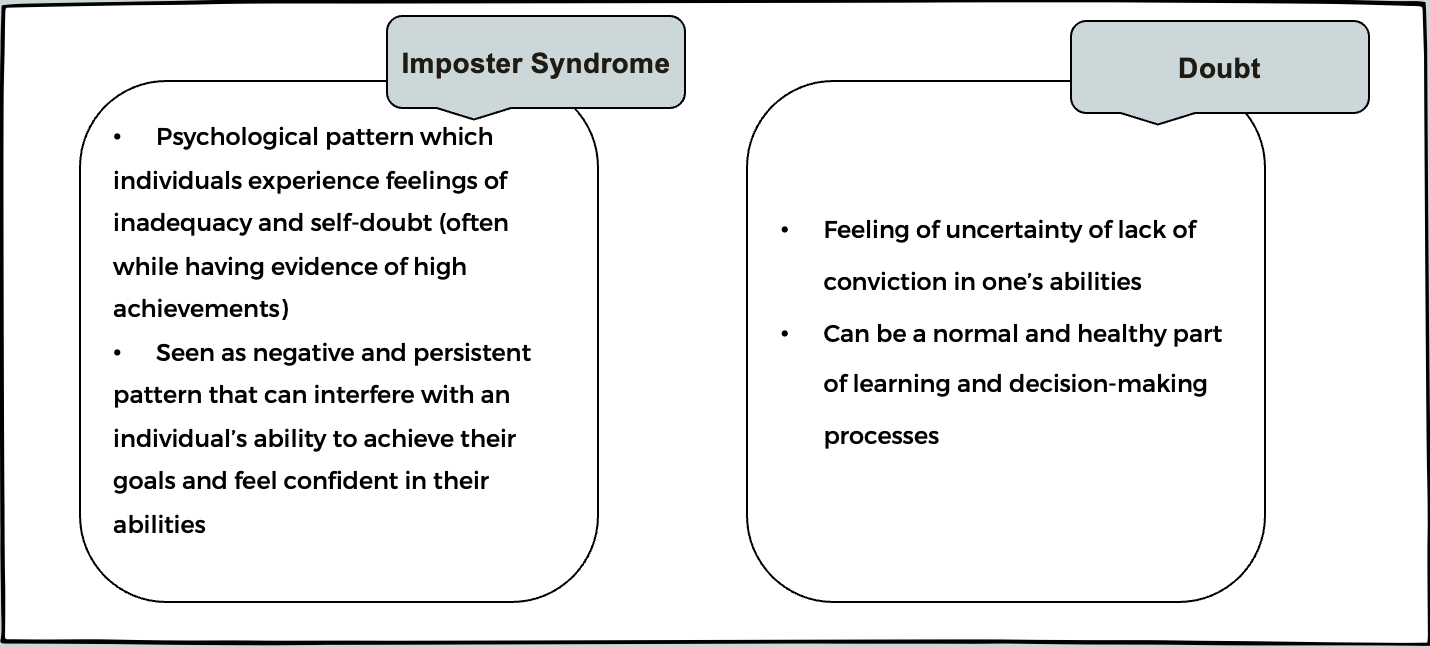Am I An Imposter: How to Overcome Imposter Syndrome?
Have you experienced feeling like an imposter? Do you doubt your abilities and/or capabilities? This is called imposter syndrome. Imposter syndrome is a common experience that is completely normal. However, if left alone and not addressed, it has the potential to take over our thoughts and minimize an individual’s ability to achieve their goals. To start, it might be helpful to define this thing called imposter syndrome. The truest definition I found online is this: a psychological pattern in which an individual doubts their accomplishments and has a persistent internalized fear of being exposed as a “fraud”.
I would say imposter syndrome is one of the most common topics that surfaces in my work with clients. Whether through building a business or moving internally in organizations, growing a career can be scary! This fear often creates an abundance of stories about why we are not capable of whatever goal we want to achieve.
Some of my stories about starting my own coaching business roughly 5 years ago included things like:
“your skills don’t match any other career field!”
+
“there is no way you would have any idea where to begin to create a business!”
+
“who are you to be a coach?”
+
“you are not an entrepreneur!”
+
“you are too young to start your own business!”
By learning to move through our experience of imposter syndrome it creates a powerful opportunity to get closer to the things that matter most to us: a new work role, starting a business, trying a new experience, developing a new skill and/or anything else!
So, you might be asking: How Do I Navigate Imposter Syndrome? Here are some tips and tricks!
Name the voices that are speaking (yes, give them actual names as if you and your friends are sitting around at a dinner party!)
Thank them for their very important input into your life (by surfacing these voices are sharing something important we can learn about what we want)
Give these voices activities to do that are supportive of the goals we have (for instance if you have a perfectionist within you but they are focusing on getting something perfect that is not the highest importance right now, redirect the focus)
I created an acronym I like to use to engage with my experiences of imposter syndrome that provides an easy way to think about these strategies:
T.I.R.E
T- talk (about it)
I – interact (with it)
R – reflect (on it)
E – engage (with it)
An important distinction to make about the experience of imposter syndrome is the difference between imposter syndrome and doubt. Check out this chart I created below that outlines the two main differences between doubt and imposter syndrome. A few main things to highlight:
Doubt is a feeling whereas imposter syndrome is a psychological pattern
Doubt is part of the experience of imposter syndrome but not the whole experience
Imposter syndrome can be negative if persistent
Doubt is normal and healthy (as all emotions are!)
There is so much we can learn from our experience of imposter syndrome. If you are struggling with your own experience, please do not hesitate to reach out to me to discuss your experience 1-1 or schedule a time to see the full imposter syndrome presentation I have.
What is your relationship with imposter syndrome?

